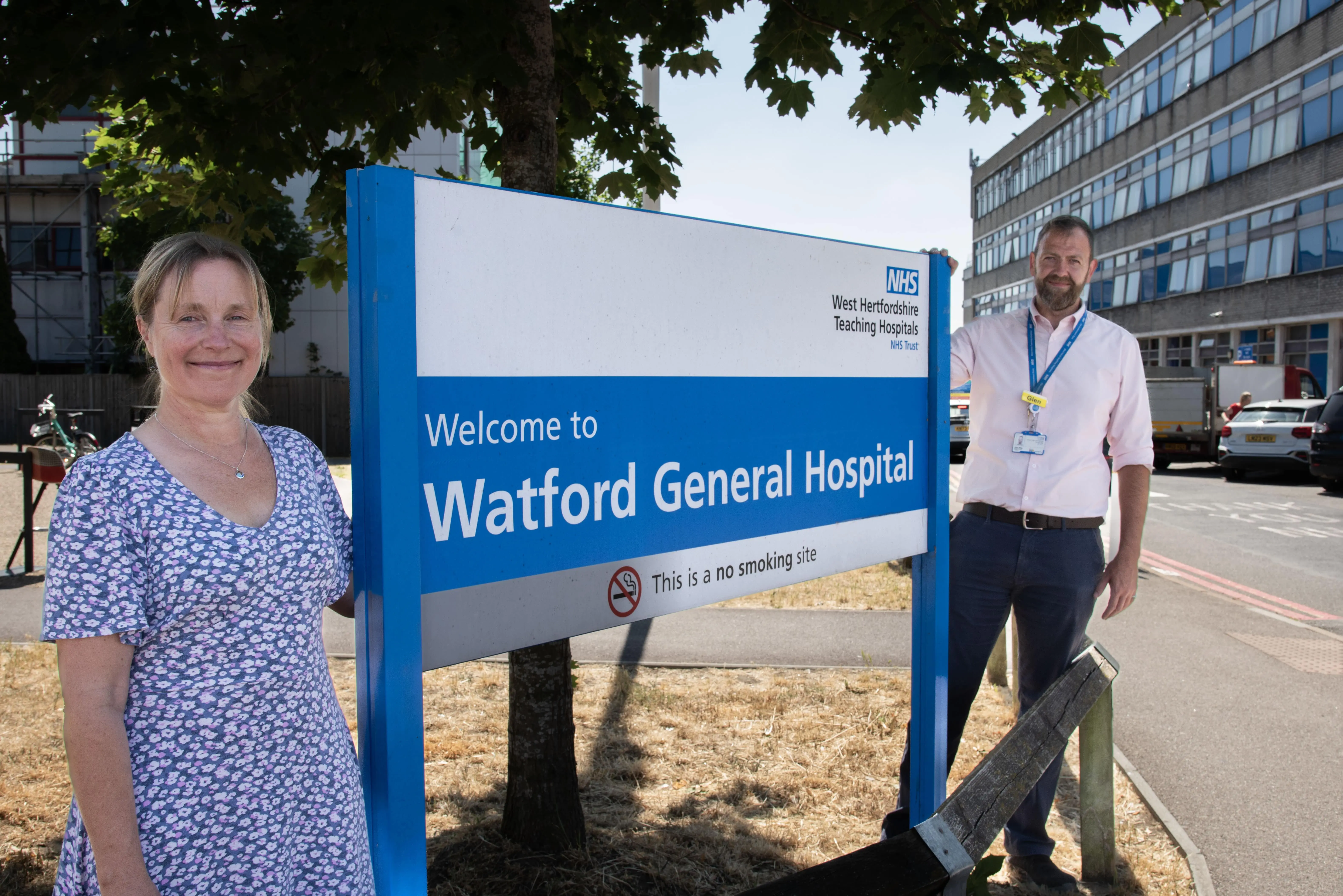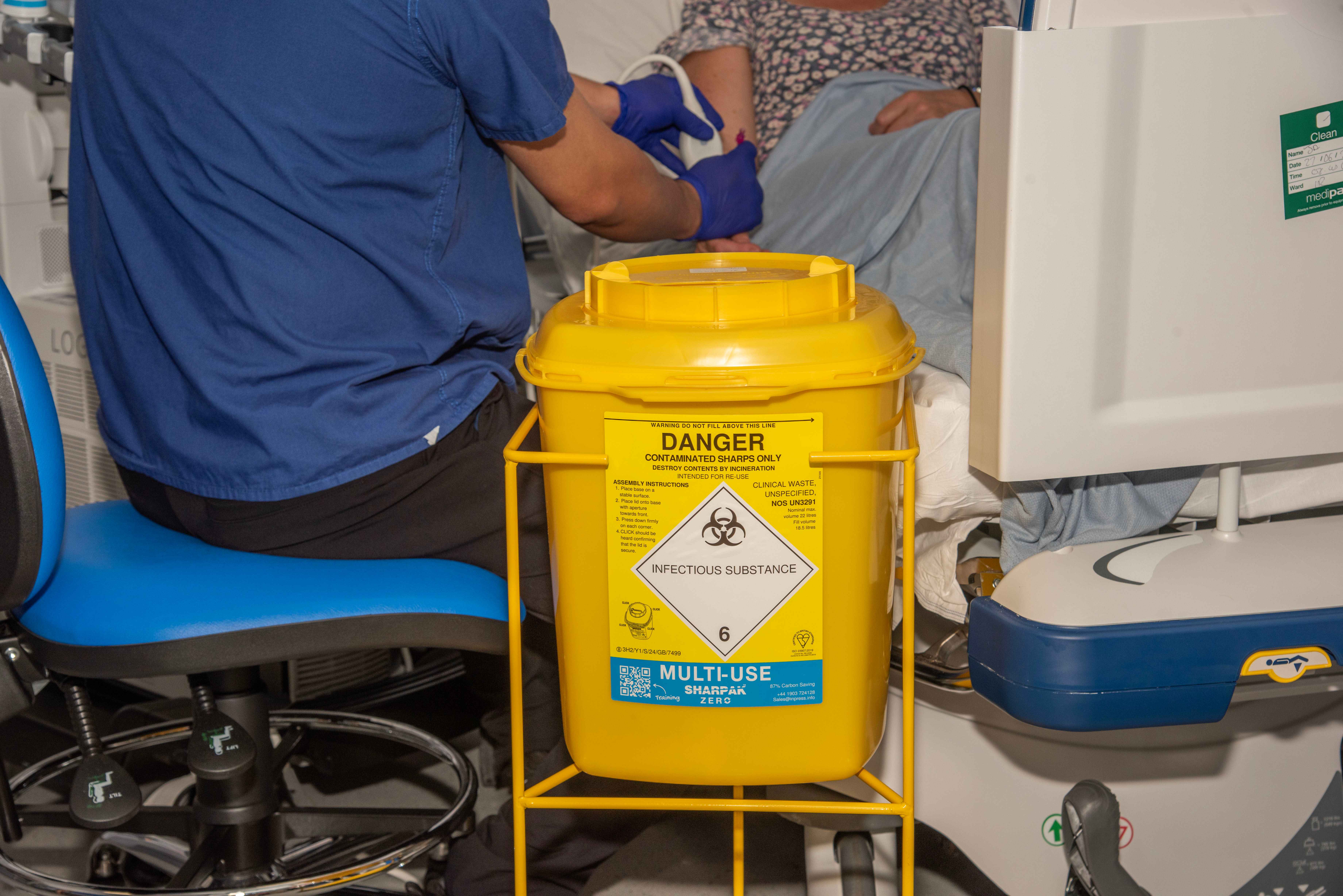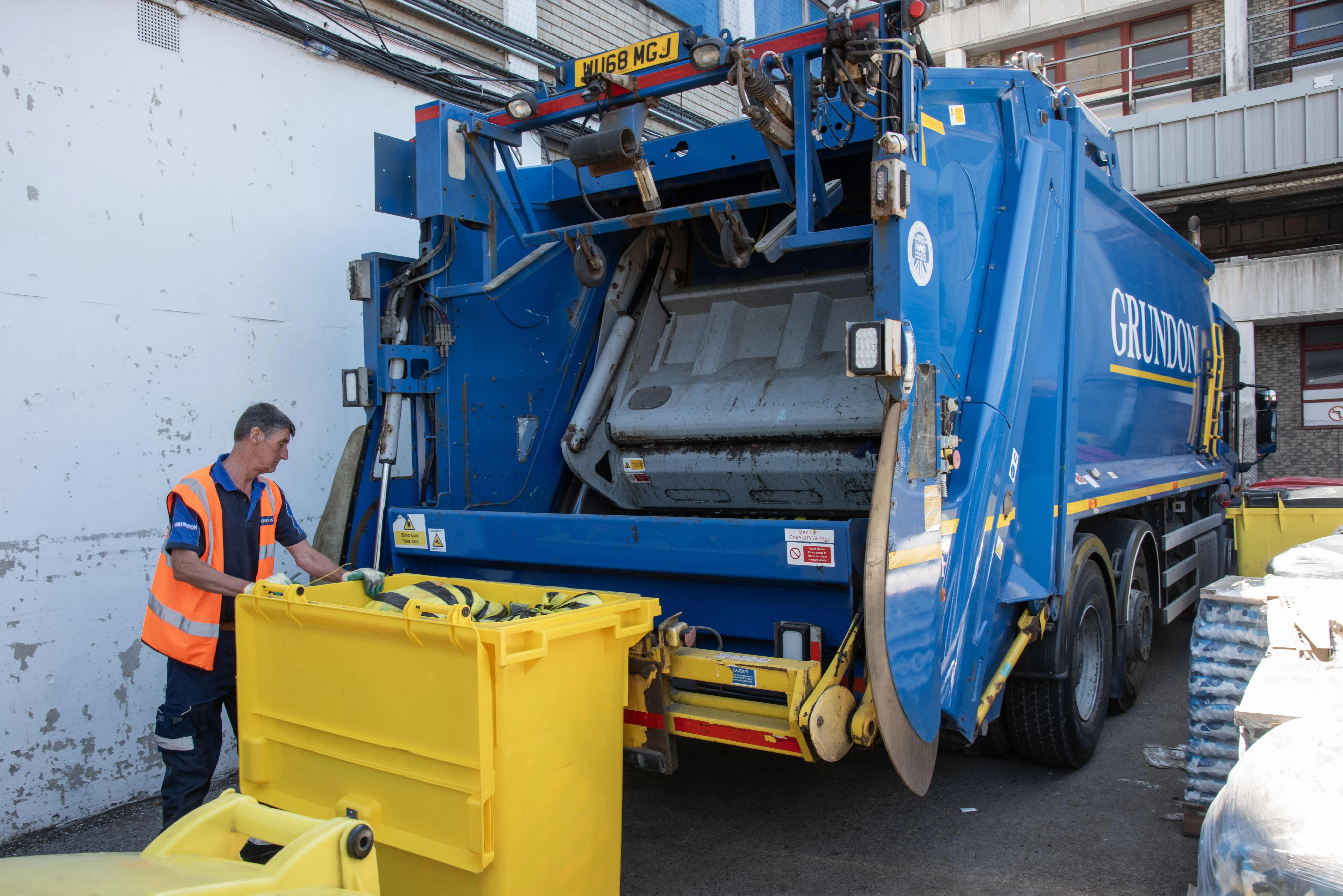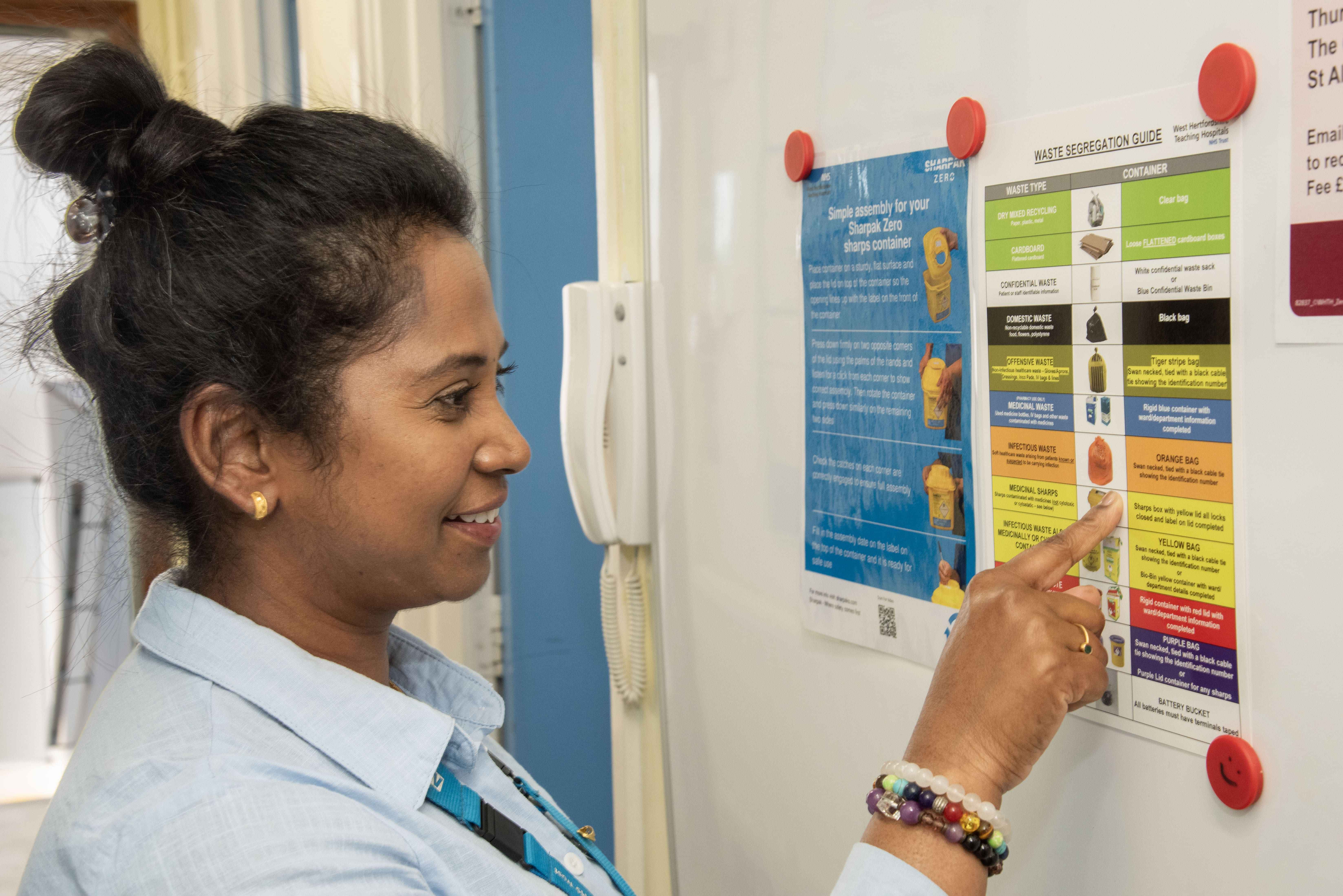West Herts NHS Trust is beating carbon-saving targets with innovative ideas and solutions.
For all NHS trusts, the pressure is on to meet the demands of the NHS Clinical Waste Strategy.
En route to the goal of making the NHS estate net zero by 2040, the strategy includes improving waste segregation and compliance by aiming for a 20-20-60 waste split – 20% high temperature incineration (yellow bag) waste, 20% infectious treatment (orange bag) and 60% offensive waste (tiger stripe bag) – and making the management of waste contracts a priority.
At Grundon we are proud that we are already exceeding these targets as all orange sack and offensive waste sacks are sent for Energy from Waste incineration.
One trust which is already streets ahead on performance is West Herts NHS Trust, home to Hemel Hempstead Hospital, St Albans City Hospital and Watford General Hospital.

Thanks to its partnership with Grundon, which manages disposal of all its clinical waste streams, the Trust is reporting annual savings of thousands of pounds a year and chalking up impressive carbon reductions too.
Glen Riley, Waste Manager, explains: “Being on target for the clinical waste strategy is massively important and thanks to Grundon we are making real progress.
“The 20-20-60 split aims to get 60% of waste down the lowest carbon route through correct segregation and classification of the waste. With Grundon’s assistance, and the fact we are using more efficient disposal methods combined with reduced waste collections, our carbon footprint savings are significant.
“The two biggest innovations, which have made a massive difference to our carbon savings and meeting NHS net zero targets; are the introduction of new-style reusable sharps containers and sending our orange bag waste direct to Grundon’s Energy from Waste (EfW) facilities.
“In addition, the switch to Grundon’s new reusable sharps container collection service is estimated to save us around £40,000 a year alone.”
Glen Riley
Waste Manager

“We currently send 80+% of waste to EfW and the rest goes to High Temperature Incineration (HTI) so, technically, instead of 20-20-60 our figures are more in line with a 10-90 split.
“We are now above and beyond the expectations of NHS England and the net zero targets, and that is purely down to Grundon’s disposal methods.”
In the financial year April 2024 – March 2025, over 110,700kgs of the Trust’s orange bag waste was diverted to EfW to generate electricity, instead of being sent for Alternative Treatment. Combined with offensive waste (also sent to EfW), this generated 245 MWh of electricity.
The Trust’s success has been such that in 2024’s NHS England’s Estates Return Information Collection* (ERIC) reports, it was listed in the top five for its region.
Grundon has been working with the Trust for two years and, after carrying out a series of audits, was able to make significant changes to waste collection and disposal processes.
Grundon’s Becky Lillywhite, Contract Manager – Clinical, explains: “We moved all offensive waste containers into one area, which makes collections more efficient for both Glen’s team and our drivers.
“Collections are very frequent (every other day, including weekends) and we have been able to reduce vehicle movements on site as the reusable sharps containers are collected on our double deck vehicle at the same time as other clinical waste. Our waste wheeler compaction vehicle collects offensive waste three times a week.”

Grundon is well-known for its innovative approach and a typical example was when a solution was needed to a tricky problem that emerged as waste collections at the Trust first started.
Becky explains that at Watford Hospital the service area is on a slope, which led to operational issues because the tail lift on Grundon’s double deck rigid vehicle could not operate. While in the short-term alternative vehicles were used, an LGV Technician at Grundon’s Colnbrook depot workshop stepped up to the challenge, installing an additional air ram to solve the problem and winning himself an internal Star Performer award at the same time.
All Grundon’s commercial waste vehicles are certified CarbonNeutral®, which means they do not add to the Trust’s carbon emissions, and there are future plans to introduce electric waste collection vehicles to the route.
Another important part of the changes has been to ensure that all NHS employees involved in waste processes – from nurses on the wards to operatives in the service yards – understand the reasons for the changes, especially the importance of correct segregation.
Grundon attends the Trust’s annual waste awareness days and Glen says: “When Becky and her colleagues are on site for meetings, we do walkarounds and engage with staff to talk about any issues and highlight if there have been any changes or guidance on disposal of waste.”
To also help get those messages across, Grundon provides waste signage and posters and has provided an online nine-minute clinical waste training animated film for staff to access 24/7.

Glen concludes: “Grundon has solved every single issue for us – the audits which helped us understand the composition of our waste was invaluable and helped achieved real efficiencies on site; they introduced more sustainable collection options, which in turn reduced vehicle movements; and they provide reliable data which really improves our account management.
“I’ve been in the business for years and, having seen Grundon’s facilities, I know theirs are some of the best. And, because their Colnbrook operation is close to us, we’re not sending our waste a long distance, which also helps with our carbon footprint.”
Glen Riley
Waste Manager
“Overall, by making the processes more succinct and streamlined – at no real additional expense – we’ve saved man hours and labour, and we’ve had recognition from NHS England for both our waste figures and our waste management. Every aspect of the service has been brilliant.”
